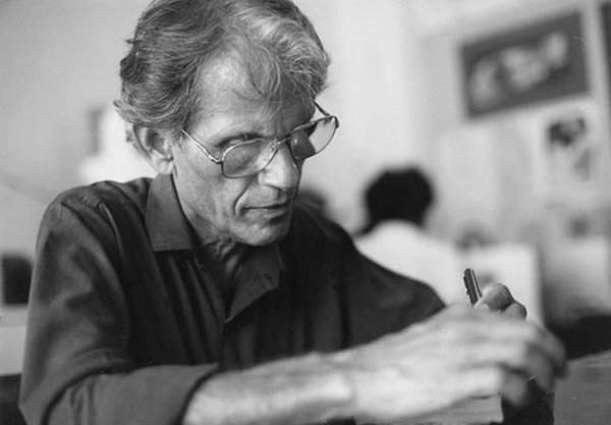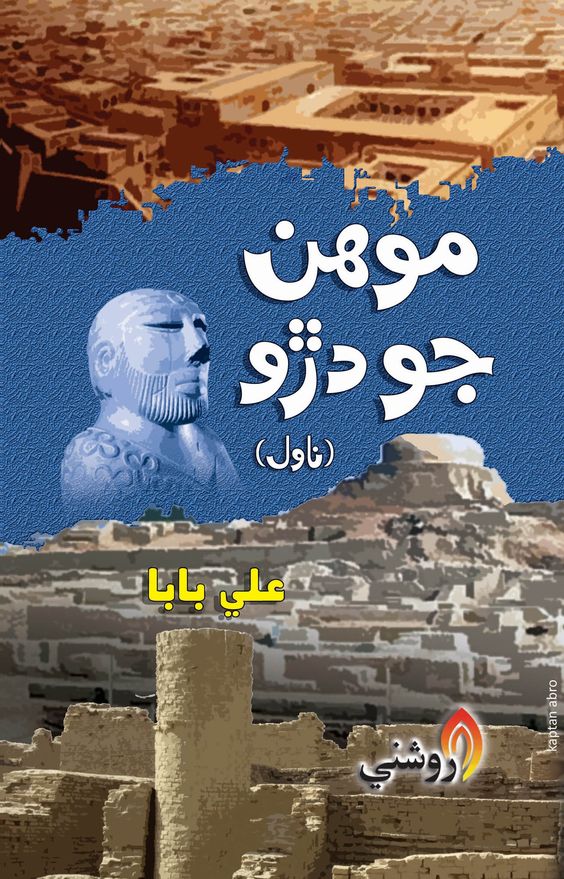
Ali Baba’s fiction featured Sindh’s history, marginalized communities and their socio-economic conditions.
Ali Muhammad Rind, known Ali Baba, his pen name, one of the finest Sindhi language fiction writers, was born on July 8, 1940 and passed away after suffering from multiple diseases and finally due to brain hemorrhage on August 8, 2016 at the age of 76. Ali Baba was at home in a slum area of Karachi watching TV in the morning when he suffered severe heart attack. He was rushed to a hospital but could not survive.
Ali Baba was regarded as a prolific and one of a few ‘original’ writers of Sindhi language, who wrote in almost all forms of fiction, got fame but remained impecunious for most of his life.
He was born to Mohammad Ramzan Rind, an employee of the Pakistan Railways posted at Kotri town. He got elementary education in his home town and then worked briefly in the railways department. He also worked in a textile mill and left it soon as he chose to become a full-time writer.
He wrote his first short story when he was just 12 and kept writing for more than six decades.
Ali Baba wrote short stories, TV plays and a novel ‘Mohen Jo Daro’, a widely acclaimed piece that earned him praise for his unique style, unparalleled imagination and poetic diction. His choice to rely on his creative prowess to earn livelihood brought miseries to him and his family — a wife, two daughters and two sons — who remained impoverished for all their life. Two of his children had neurological problems, which too kept him disturbed as he had no money to treat them regularly.
And, despite all this, he had a piece of land in Kotri, which he donated for establishing a girls’ school. He literally fought for the school as he wanted every girl to get education.
Unlike most of his peers, he refused to accept job offers in the government sector. He refused because he wanted to be a free soul, which he remained despite lifelong hardship he faced.
Ali Baba was a storyteller who knew soul of Sindh better than any other fiction writer. His fiction featured Sindh’s history, marginalized communities and their socio-economic conditions. His short story, ‘Dharti Dhikana’ (Uprooted people) highlighted miseries of the 1947 Partition, while ‘Karoonjhar jo qaidi’ (Prisoner of Karoonjhar) focused on Sindhi freedom-fighter Rooplo Kolhi, who fought against the British in Karoonjhar mountains of Thar.
 He was among a few Sindhi writers who had never been accused of plagiarism. And, he had original stories to tell us whenever you demand for one.
He was among a few Sindhi writers who had never been accused of plagiarism. And, he had original stories to tell us whenever you demand for one.
‘Dungi Manjh Darya’ (Boat sailing in river), one of many TV plays of Ali Baba, who loved to be called as Ali by his friends, won a prize in a drama festival in Munich in 1981. The play was telecast in 1976. Three compilations of Ali Baba’s short stories have been published so far out of countless others although many of them have appeared in magazines and are yet to be compiled and published.
Scholar Pir Hisamuddin Rashdi called Ali Baba the ‘narrator of Sindh’s history’ in one of his books, as Ali Baba traveled the entire province and depicted the essence of Sindhi culture in his dramas.
_____________________
Sindh Courier